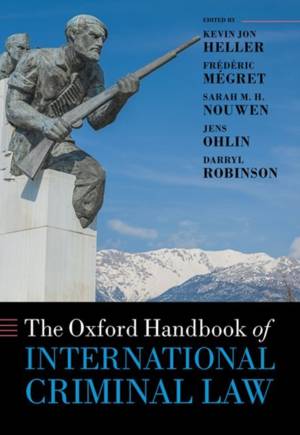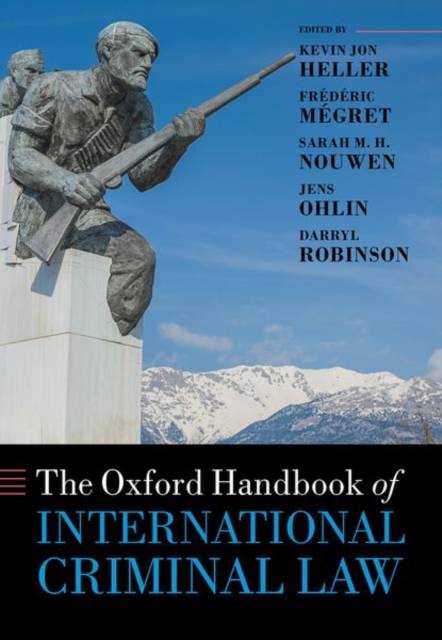
Door een staking bij bpost kan je online bestelling op dit moment iets langer onderweg zijn dan voorzien. Dringend iets nodig? Onze winkels ontvangen jou met open armen!
- Afhalen na 1 uur in een winkel met voorraad
- Gratis thuislevering in België vanaf € 30
- Ruim aanbod met 7 miljoen producten
Door een staking bij bpost kan je online bestelling op dit moment iets langer onderweg zijn dan voorzien. Dringend iets nodig? Onze winkels ontvangen jou met open armen!
- Afhalen na 1 uur in een winkel met voorraad
- Gratis thuislevering in België vanaf € 30
- Ruim aanbod met 7 miljoen producten
Zoeken
Omschrijving
In the past twenty years the field of international criminal law has become one of the main subfields of international legal scholarship and practice with many texts in the field focusing on core crimes and judicial procedure. Eschewing this traditional approach however, the Oxford Handbook of International Criminal Law instead looks at who the actors are, how international criminal law goes about achieving its ends, where (geographically) it applies, when it applies, and why the system came into being and continues to grow. By taking a step back and critically examining prevailing practices, orthodoxies, and received wisdoms, the authors deploy alternative modes of analysis and bring conceptual, theoretical, and interdisciplinary tools to bear on old and new problems alike. Contributions from key figures in disciplines outside of international criminal law such as anthropology, geography, history, philosophy, international relations, and rhetoric come together with legal experts to illuminate the rich tapestry that is international criminal law.
Specificaties
Betrokkenen
- Auteur(s):
- Uitgeverij:
Inhoud
- Aantal bladzijden:
- 912
- Taal:
- Engels
- Reeks:
Eigenschappen
- Productcode (EAN):
- 9780198825203
- Verschijningsdatum:
- 24/03/2020
- Uitvoering:
- Hardcover
- Formaat:
- Genaaid
- Afmetingen:
- 173 mm x 249 mm
- Gewicht:
- 1769 g

Alleen bij Standaard Boekhandel
+ 692 punten op je klantenkaart van Standaard Boekhandel
Beoordelingen
We publiceren alleen reviews die voldoen aan de voorwaarden voor reviews. Bekijk onze voorwaarden voor reviews.











